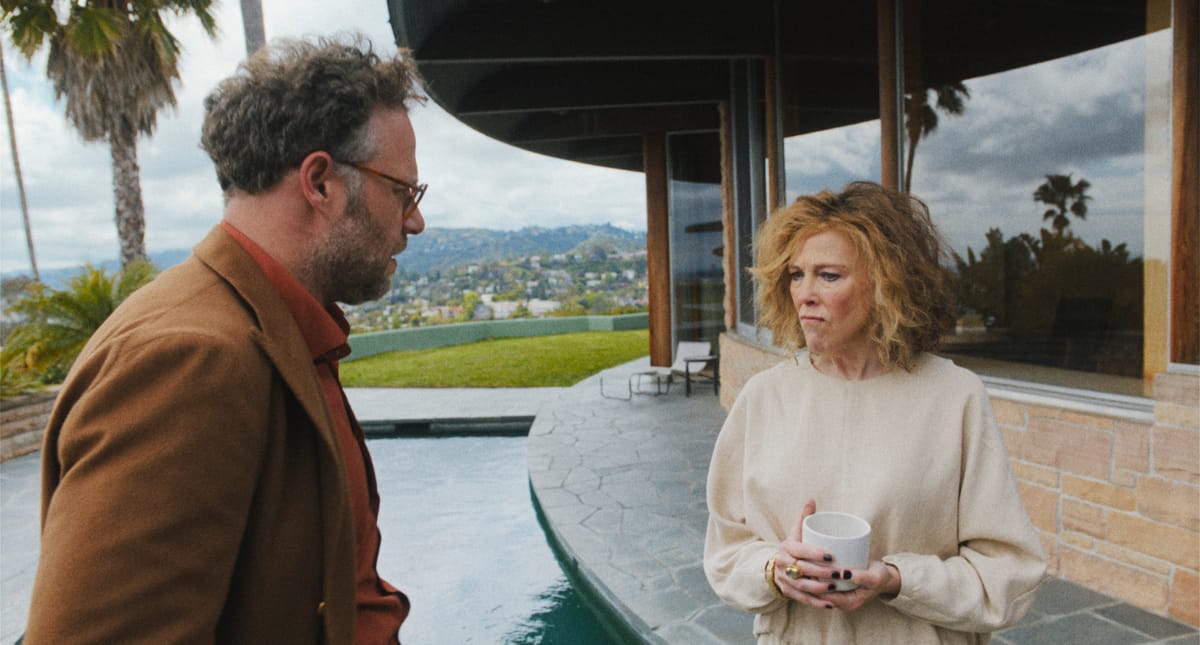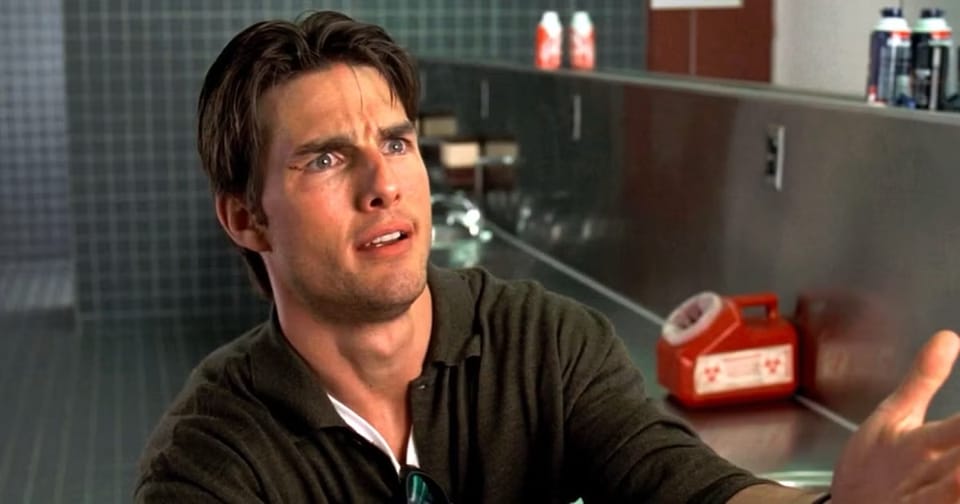When to write for free.
Yet, I have never found this blanket policy of "never write for free" realistic or even desirable. But there is a time and place.

The Story and Plot Weekly Email is published every Tuesday morning. Don't miss another one.
When to write for free.
I met with a well-established producer this week. The producer controlling the project wants to bring on a larger producer to help accelerate its progress.
This is smart, and honestly, getting a bigger producer on board is one of the primary jobs of any producer who is not already that "bigger producer."
The new producer has over 30 studio films to his credit. A-list actors and directors; he's been nominated for an Academy Award.
This is someone who has the relationships to get people on the phone and can get scripts read.
He was extremely generous in his praise of my work, so he is also super-intelligent and has excellent taste, too!
He wants to help package it, and he said he would be fine going out with the screenplay the way it is now. That said…
He would prefer if I did a quick polish first.
A week's worth of work. Two, tops. Nothing major.
My choice.
He assured me that they have very few thoughts, but they really think the changes could elevate the material to be worth the effort.
I made a quick assessment and agreed in principle to do it.
I asked that the notes be specific, and the current producer emphasized how important the tone was and that he didn't want to see it watered down, etc…
But it was agreed that unless these notes are bat-shit crazy, I'm going to try in good faith to execute them.
So I have agreed to do free work.
There is often repeated conventional wisdom that we should never, ever do this.
This advice is well-intentioned. It stems from writers being consistently exploited in every imaginable way.
And believe me, you will be exploited if you let it happen.
Yet, I have never found this blanket policy realistic or even desirable.
There will be times when you will find it in your best interest to write without monetary compensation.
That said, your compensation should still exist in other ways. It's your job to understand what that compensation is and to ensure it matches your labor.
Someone will always ask for free rewrites.
It is inevitable. I am not sure I've ever been on a project when it didn't happen.
Some notes are excellent and really improve the project. You love those. Some are terrible, and that is always difficult. It takes skill to work through those.
But most notes are lateral moves that amount to personal preference. They make no real difference in the script. They don't "move the needle."
Yet everyone wants to be a part of the process.
You could write a book on the psychology of how and why every person wants to put their stamp on a project and why it so often seems to hurt emotionally when they do.
The Apple TV series THE STUDIO with Seth Rogan does an impeccable job portraying the executive's desire to be seen as an artist like any other filmmaker.
Each person is attached to their preferences.
Everyone wants to feel valued. Just like it hurts a little to have your moment on the page rejected, it hurts to have your creative note rejected, too.
This is key to remember. This endeavor is personal. You already know this about yourself. Just remember, it's true for them, too.
The emotionally mature ones in the room will always stay focused on the main goal: getting a movie made.
And this is the assessment you must make every time. What is your goal in this transaction?
If you are not being paid directly for your services, what exactly are you getting in return for your efforts?
And if you decline such work, what is the opportunity cost?
You must know your worth.
Early on, you will be tempted to say "yes" to everything. Each opportunity will look like the potential big break of your career.
We are all particularly vulnerable to praise in the early days (honestly, I still am), and this makes us vulnerable to bad deals.
We want to believe because we're just so excited to be in that position!
Without skin in the game, however, people can get bored with projects quickly. You could be pouring your heart into something, chasing your tail for a year with endless notes, and still get nowhere.
That "manager" who asked you to write it has thirty other ideas with other writers, and he is just hoping one of them pops.
Working for free is a serious decision and should be treated that way.
But we can also overstate our value.
My frequent collaborator, Kristy Dobkin, and I wrote a pilot on spec in 2009. Still one of my favorites. We had a few people read it, and the reaction was strong.
A producer brought it into Chernin Entertainment, and they wanted to develop it with us. Great news! But I was broke at the time, and I needed money.
I decided that if they weren't going to option the material and pay us to rewrite it, we would take it somewhere else.
Besides, I told myself, Chernin Entertainment had just started and was probably a vanity deal with Fox as a severance package anyway! They wouldn't be producing much.
Why did I believe this? No reason. None. I just decided that was the case, and suddenly I had great certainty about it.
But we never did set it up anywhere else.
And Chernin Entertainment is one of the most prolific producers in town!
Of course, there is no telling where that would have gone, but at the very least, relationships could have been formed, and that's currency in this business.
There is no doubt in my mind that "never do free rewrites" was likely unwise here. At least until it was proven otherwise.
There are times when writing for "free" is good business.
These times are specific, narrowly defined, and should have guard rails. So much so, if you do it right, you're not really working for free at all. You're working for yourself.
Here are some of the elements to help you make a decision.
Always retain the rights.
This is the most crucial. Never write without compensation when someone else will own the rights to your labor.
This is akin to going to a job site, working 40 hours that week, and no one pays you. This sounds ridiculous, because it is. So don't do it.
What does retaining the rights mean?
- The producer's control of the material is limited.
That is, it will expire in a finite amount of time. If they don't get you paid in that time, you are free to take it somewhere else. Twelve to eighteen months is normal.
- You can freely negotiate your own deal.
You should not pre-negotiate your cap unless money is exchanged. When you pre-determine the purchase price, that is an option. And an option should be 10% of that purchase price.
$1 options were common before shopping agreements became so popular, but they're not technically allowed by the WGA (which requires the 10%).
However, since options are a huge pain to negotiate, shopping agreements have become more common, allowing you to negotiate your own deal.
NOTE: You can ask, and even demand, monetary payment for a shopping agreement. As I mentioned, if people do not have skin in the game, it's easy for them to move on.
- Retain all rights to any rewrites performed.
Get it in writing that any rewrites you perform are owned by you after the producer's control of the property lapses. Once the deal expires, they should have no claim on work performed during that time.
In writing. A handshake deal is not enough. If they didn't pay for it, they don't own it.
You do not want that producer to turn up later, saying they are attached to the script because they "developed" that new draft. This has complicated and even ruined many deals.
Does the team significantly help the project?
You have to make a judgment call about whether this producer or team can get the movie made and/or a relationship with them is worth developing beyond this deal.
This is easy when it's a known, big-time producer. But people call themselves producers all the time who can't really help you move your project forward.
Others are quietly well-connected, and you have never heard of them.
It can be a minefield, and each relationship is different. Do your homework, ask around, and be very deliberate with this analysis.
Note: If anyone ever asks you for money, no matter how small or for what reason, run away. I don't care if it's $10 for parking. It is a con.
Does the team share your vision?
This is the toughest one as it is the least tangible and often where we shoot ourselves in the foot. We mistake discomfort for integrity, and we're too protective of work that could actually use help to blossom.
But we still want to make sure everyone is on the same page and wants to make the same movie.
It's a different arrangement if they're paying you. If they're paying you, it's your job to write the movie they want.
But you don't want to be put in a position where you feel you're making the screenplay worse, hurting your chances of actually getting paid, all the while NOT being paid for your effort!
It's a recipe for bitterness and resentment.
But again, you have to make sure you're not the one being a jerk and oh-so-precious about work that needs to improve.
Last and most important, always retain the rights
Did I mention this one yet? Because it's really, really important.
Always retain the rights to anything you're not being paid for.
An example:
Before I sold MOST WANTED, a significant producer expressed interest in coming on board to produce. On Tuesday, it was "This is perfect. No notes."
Within a week, it was, "Let me pitch you this: reverse the sexes of the leads, change who they're hunting and why, and change the genre from action-comedy to action-romcom."
That is, of course, an entirely different movie.
But this was someone I wanted to work with. I also did not have an agent at the time, as I left my previous agent because they did not believe in this very script!
So, I countered: "How about I write that idea for you on spec, I'll find a different producer for MOST WANTED, and in the meantime, help me find a new agent."
- I wrote that spec, but we didn't sell it. I currently retain the rights free and clear.
- I sold Most Wanted with a different producer, so I protected that property.
- I got a new agent more quickly than I expected, but the help, assuming he would have followed through, would have been appreciated.
- I maintain a good (but not great) relationship with that producer. I can always go back to him with something else (it would be a great relationship if we had sold it!)
Always know your goal going in.
This was a huge lesson in my career. Never do anything without knowing exactly what you want out of it.
Never go into a meeting, never write a script, never rewrite a scene, never say "yes" without knowing precisely what you want out of it.
Too often, we do all of these things without thinking. It ends up being "fake work."
We feel busy, we look busy. We get the stress of being busy.
But we're not moving towards our goals. And in some cases, we're not even being paid!
Know your objective.
Focus on it. Attack it. And guard your flanks.
This intentionality force-multiplies your effort, and you get to your goals significantly faster.
The Story and Plot Weekly Email is published every Tuesday morning. Don't miss another one.
When you're ready, these are ways I can help you:
WORK WITH ME 1:1
1-on-1 Coaching | Screenplay Consultation
TAKE A COURSE
Mastering Structure | Idea To Outline




